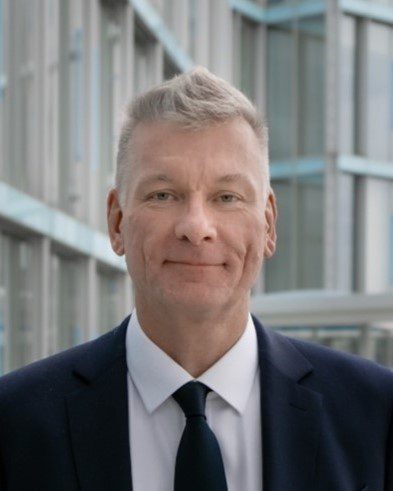The RAS Industrial Activities Board (IAB) is dedicated to fostering the growth of the industrial community within the IEEE Robotics and Automation Society. Our mission is to enhance collaboration between industry and academia by encouraging industrial participation in current activities and initiating new actions beneficial to this community.
We warmly invite you to join us at the following events during CASE 2024!

IAB Coffee Break
Thursday August 29, 2024 | 15:30 – 16:00 | Coffee Break Area
Join us for a relaxing coffee break where you can meet and interact with fellow conference attendees. This informal setting provides a great opportunity to network and discuss potential collaborations.

Industrial Panel
Thursday August 29, 2024 | 16:00 – 17:00 | Plenary room
Gain insights into the latest trends and advancements in the industrial sector from leading experts. This panel will feature discussions on cutting-edge technologies and their applications in manufacturing and robotics.
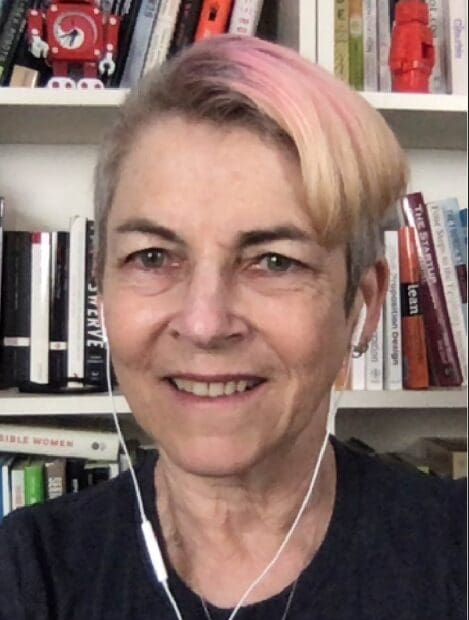
Moderator: Andra Keay
Vice President RAS – Industrial Activities & Deep Tech Core Team Lead Managing Director | Silicon Valley Robotics
Andra Keay is recognized as a global thought leader and ecosystem builder in the emerging sectors of robotics as the Managing Director of Silicon Valley Robotics, an industry group supporting the innovation and commercialization of robotics technologies.
The Silicon Valley area is home to the world’s largest robotics and AI cluster, with over 600 robotics companies, 50 robotics/AI research facilities, and 50% of the world’s global investment in robotics, or $7.5 billion, in 2018 alone. At Silicon Valley Robotics we support the innovation and commercialization of robotics technologies.
Andra is an experienced futurist and is also the founder of Robot Launch, a global robotics startup competition, cofounder of Robot Garden hackerspace, mentor at hardware accelerators, startup advisor, and investor, dedicated to growing equitable and ethical Autonomous Intelligent Systems (AIS).
Andra also cofounded Robohub, the global robotics research news site, building on her background in film, television and media production, internet and computing technologies, with degrees in Interaction, Communication and Human/Robot Cultural Studies and was selected as a Human-Robot-Interaction (HRI) Pioneer in 2010. Andra taught Interaction Design and Theory and started the professional community – https://womeninrobotics.org/.
Andra has keynoted at major international conferences including Future World 2018, Global Female Leaders Summit 2018, Global Talent Summit at Davos 2018, Delphi Economic Forum 2018, SVIEF 2018, 2017, 2016, Ada Lovelace Festival 2017, Road to GES 2017, Singularity U Global Summit 2017, Strata+Hadoop 2017, Design 2017, WebSummit 2017, 2016, 2015, 2014, World of Drones 2017, USI 2016, SxSW 2015 and 2018. Andra talks about; a. Good Robot Design; b. Building Successful Value-Driven Technology Clusters; c. Robotics Industry And Investment Trends.
Manufacturing 5.0 @ Magna
Alexander Zak
Global Director, Corporate R&D, Advanced Manufacturing & Robotics, Magna International Inc.
Alexander Zak has worked at Magna International since 1996, and is currently a Global Director, Corporate R&D. In this role, Zak works with universities, research labs, and suppliers to make robots more adaptable, flexible, human-like and collaborative for various material handling and assembly operations.
Since 2014, he has dedicated his time and passion toward advanced robotics and advanced manufacturing. One key focus area is the development and evaluation of advanced robotics software and hardware (if not available on the market) technologies for automotive production. Before working in advanced manufacturing, Zak evaluated and tested various advanced products and technologies for readiness and use in the automobile – varying from braking to boosting technologies. Prior to that, he spent more than five years as the Global Director, R&D for Magna’s Body & Chassis business. In this role, he developed and led a breakthrough tube-forming technology from “clean sheet” to production launch.
Zak holds a degree in electrical engineering from the HTL Moedling (Austria) and has received an industrial engineering degree from the Fachhochschule WR, Neustadt (Austria). His Master’s Thesis was written around Innovation Management. Zak has more than eighteen automotive products and process patents.
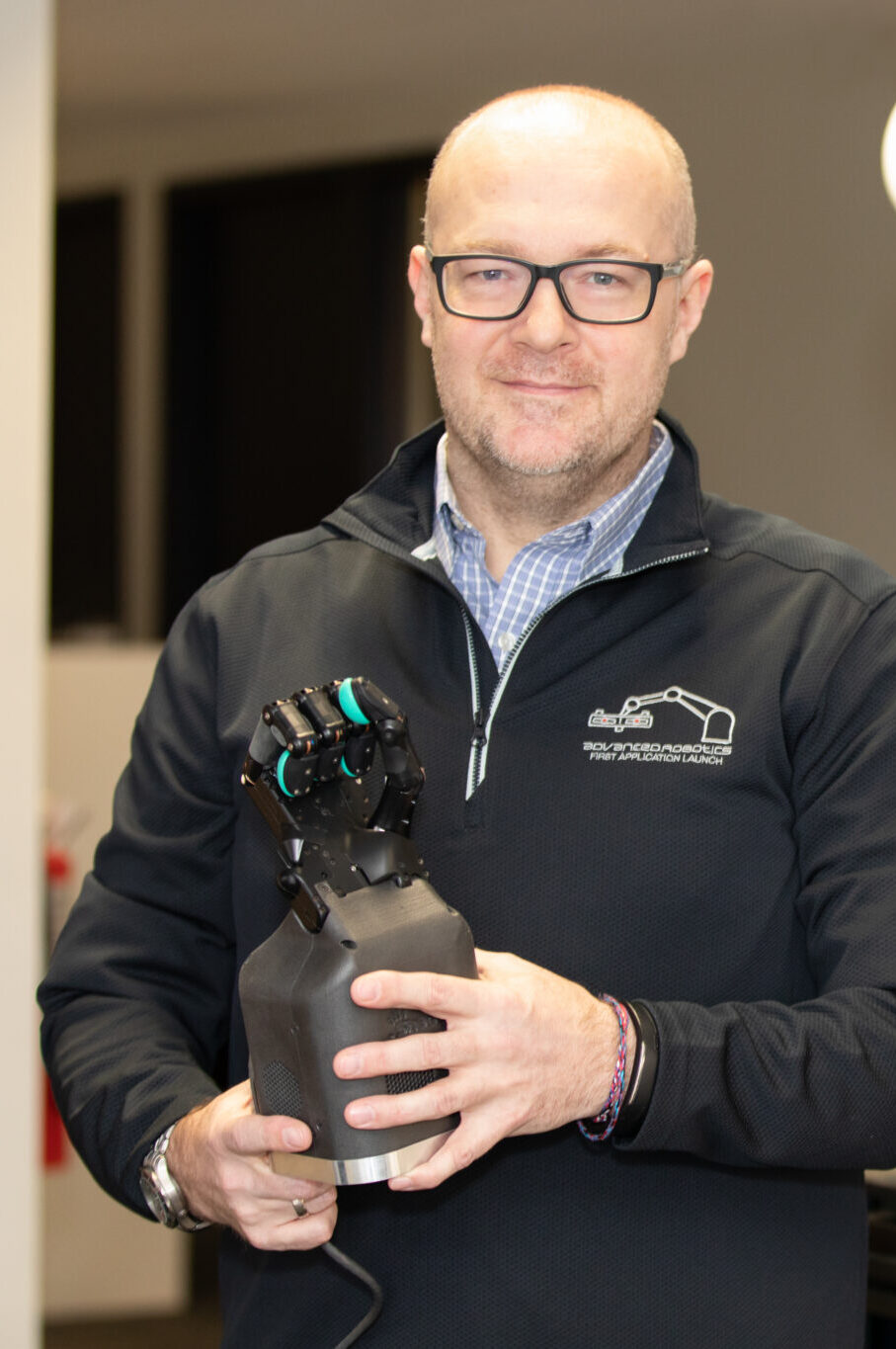
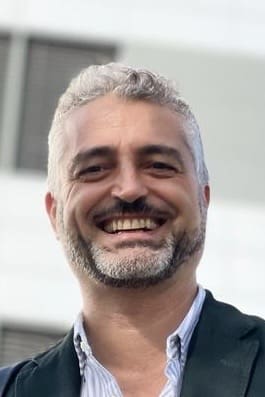
Enabling Industry 5.0: Automation Solutions for Automotive @ Masmec
Vito Lazazzera
Innovation Director – Automotive Division, Masmec S.p.A., Italy.
Vito Lazazzera is Director of Innovation for the Automotive Division at Masmec S.p.A. With a degree in mechanical engineering from the Polytechnic of Bari and Lean Six Sigma certification, he has held various roles within the company. Currently, he leads the definition of R&D programs and the industrialization of internal products and processes, optimizing them with emerging digital technologies. Additionally, he drives consulting services in engineering and manufacturing to help customers improve their performance.
Bi-manual Collaborative and Advanced Path Planning in Humanoid Robot RoBee
Fabio Puglia
President and co-founder of Oversonic, Besana, Italy.
Fabio Puglia, a graduate in Physics and Mathematics from the University of Milan, specializes in robotics and automation. His career spans both robotics and space physics. After a managerial career that took him to work in Abu Dhabi, Tel Aviv, and Pittsburgh, extending his activities to the Water and Energy sector, he founded his first tech start-up in 2014. In 2017, he was invited to present his technological solution at ICT Pasadena by JPL_NASA. Subsequently, he developed calorimetry systems for major European particle accelerators, including INFN. In 2018, he was among the founders of the Cyber Security Hub Start 4.0 of MiSE in Genoa. Since 2020, he has co-founded Oversonic Robotics with Paolo Denti, where he serves as President and CTO. Oversonic Robotics is the company behind RoBee, the first cognitive humanoid robot made in Italy, designed for operations in factories and healthcare facilities. In 2023, he was invited by MIMIT to participate in the Italy-France-Germany trilateral meeting on guidelines for the AI Act. He has established technological partnerships with leading universities and research centers worldwide, making Oversonic Robotics one of the most significant technological platforms in Europe.
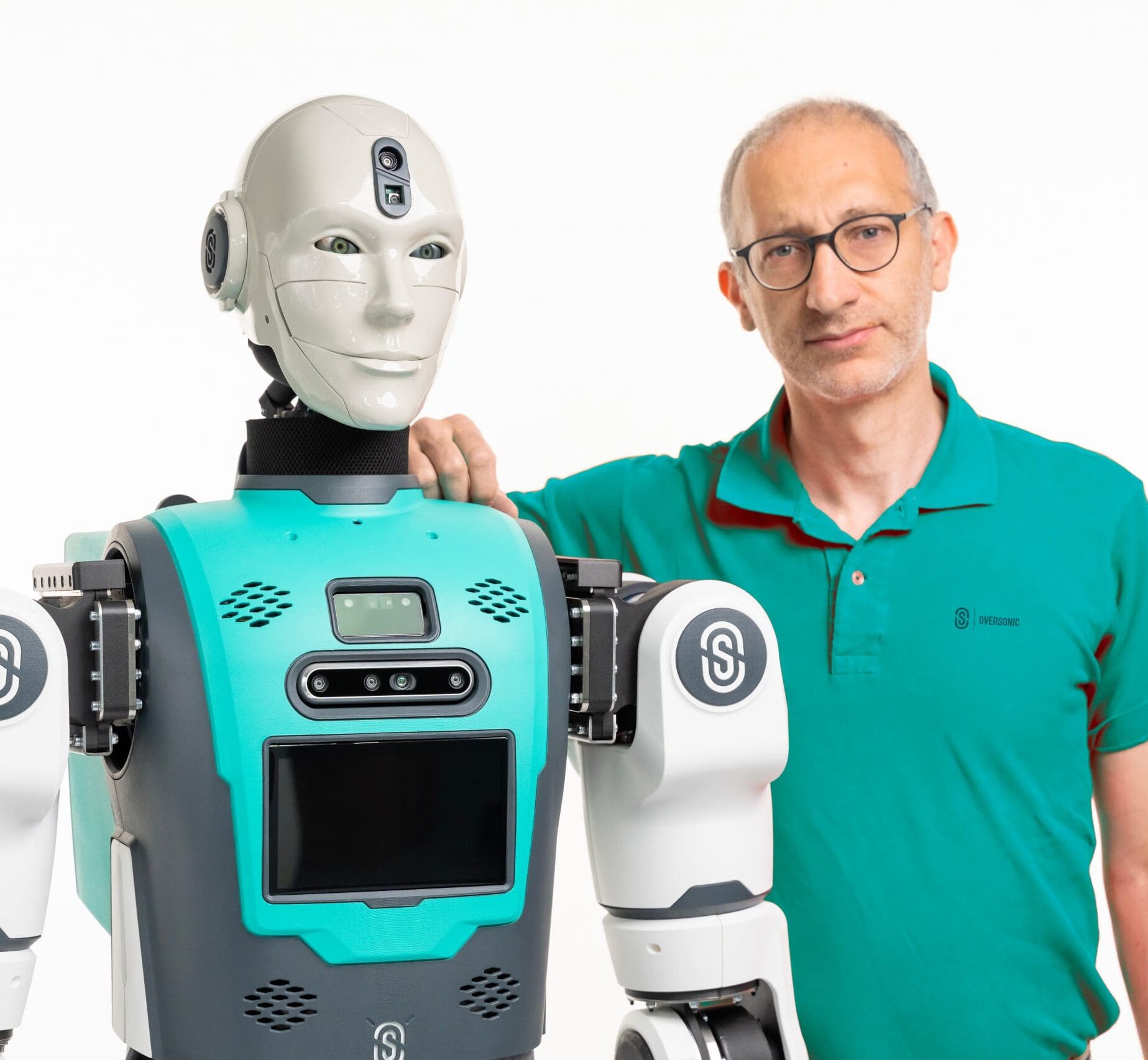
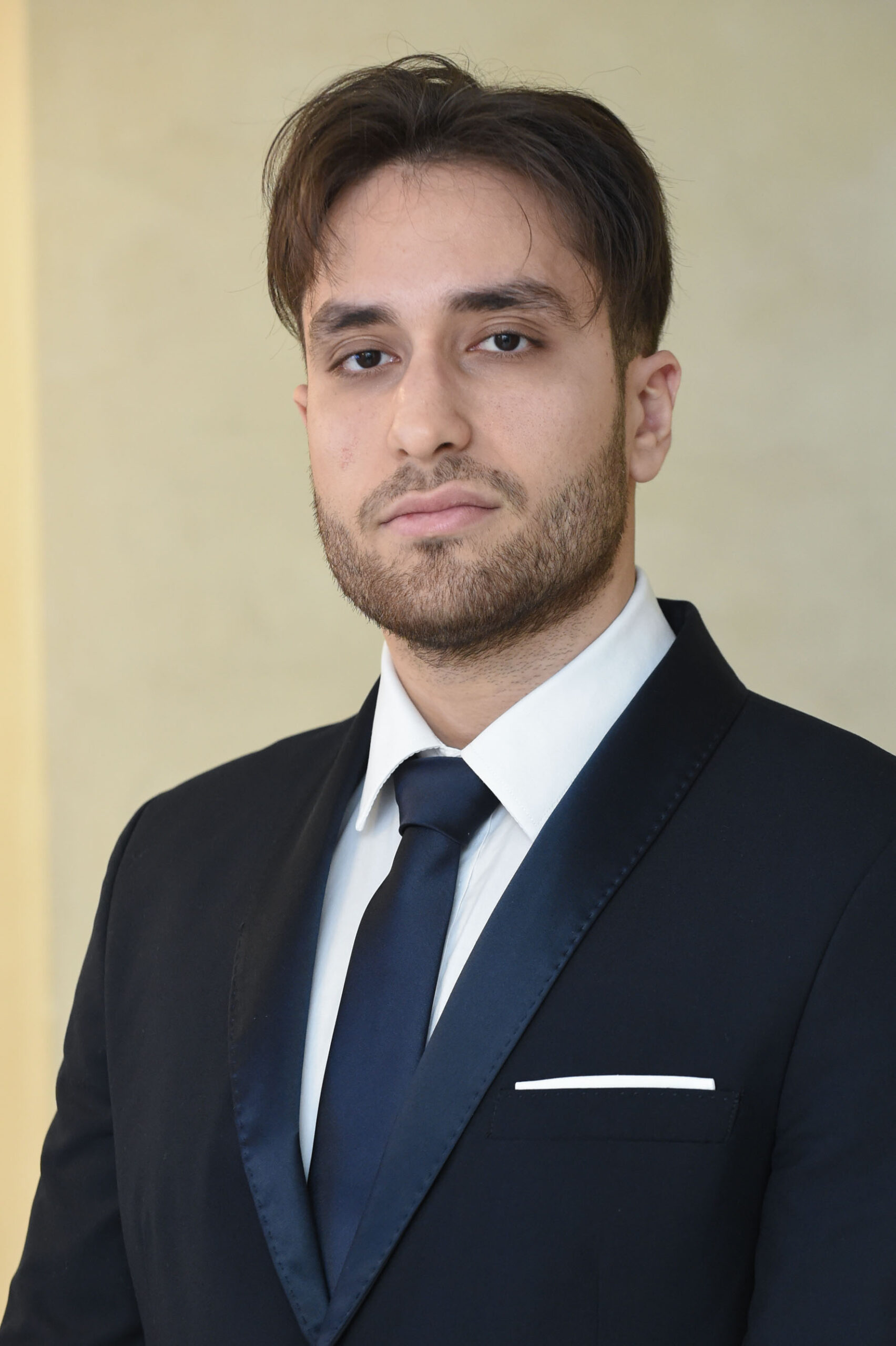
Medium Voltage Smart Grids: Automation for Evolved Operations
Pasquale Massimiliano Girardi
Head of Territorial Unit Barletta-Andria-Trani, Electricity Distribution and Measurement, e-distribuzione S.p.A., Italy
In 2015, he earned a master’s degree in Electrical Engineering from the Polytechnic of Bari, focusing on the experimental application of optimal power dispatch in Smart Grids with demand response at the Fraunhofer Institute for Factory Operation and Automation IFF in Magdeburg. In 2016, he obtained a second master’s degree in Energy Resources Management in Rome (SAFE).
In 2016, he started his professional career at E-Distribuzione in the Operation & Maintenance Unit, working on MV network automation, HV/MT protection systems, fault analysis, and network configuration optimization until 2021. Notably, he optimized FRG automation (Function based on Fault Detectors), redesigned FSL-SFS automations (Logic Selectivity Function – Smart Fault Selection) for Puglia Active Network project and designed the new SHA “Self-Healing Automation”.
From 2019 to 2021, he served as the Head of the Network Analysis and Maintenance Unit for the Adriatic Area. Since 2021 he has been dealt with field operations, holding the role of Head of the Operations Unit for Maglie Galatina until 2022 and currently he is Head of Territorial Unit Barletta-Andria-Trani.

IAB Startup/Mentor Office Hours
Friday August 30, 2024 | 10:00 – 17:00 | RAS Corner in the Exposition Area
Connect with IAB experts and mentors to gain insights and advice on your startup ventures. This is a unique opportunity to discuss your ideas, receive valuable feedback, and network with professionals in the field.

Session on the Process and Importance of IEEE Standardization for Automation
Thursday August 29, 2024 | 17:00 – 18:00 | Plenary room
Introducing the opportunity to propose and to work on IEEE standards. The aim is to inform researchers why, when and how to work on such a standard and the processes required. Standards are crucial not only for success of open automation or interfacing networked control systems as discussed in the last Automation Cluster Forum at ICRA 2024 and 2023.
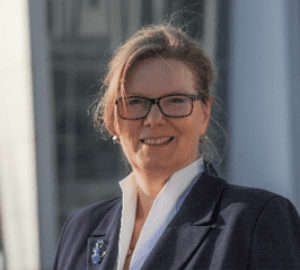
Anchor: Prof. Dr.-Ing. Birgit Vogel-Heuser
Full Professor Automation and Information Systems, Vice-Dean Research and Innovation TUM School of Engineering and Design, vogel-heuser@tum.de
Birgit Vogel-Heuser received her Dipl. Ing. degree in electrical engineering and her Dr.-Ing. degree in mechanical engineering from the RWTH Aachen, Germany. Over ten years, she acquired industrial experience in industrial automation. After different professorship positions, she was appointed to the Chair of Automation and Information Systems at the Technical University Munich in 2009. Her research is focussing on evolvable field-level automation and appropriate architectures for manufacturing and logistics systems. She is a Fellow of the IEEE, IEEE RAS Distinguished Lecturer and a member of the National Academy of Science and Engineering in Germany (acatech). She has held the Order of Merit of the Federal Republic of Germany since 2024.
IEEE Robotics and Automation Standards: Introduction and Opportunities
Prof. Dr. Paulo Jorge Sequeira Gonçalves
Professor at Instituto Politécnico de Castelo Branco | Senior Researcher at IDMEC, Instituto Superior Técnico, Universidade de Lisboa, Portugal, paulo.goncalves@ipcb.pt
The IEEE Robotics and Automation Society (RAS) has been developing standards since 2011 to formally adopt and confirm best practices in robotics and automation as standards. Its main objectives are to promote: common measures and definitions in robotics and automation; measurability and comparability of robotics and automation technology; integrity, portability, and reusability of robotics and automation technology.
The talk will start to briefly introduce the IEEE Standards Association process to develop standards, and presents well-known success stories.
The second part of the talk is dedicated to the past, present, and future of the IEEE RAS standards activities. Ranging from the first ever ontological standard for robotics and automation (2015) covering core concepts in this domain, to the most recent on Robot Task Representation (2024), encompassing standards for Map Data Representation and Autonomous Robotics. Current and future efforts will also be introduced in the areas of Human Robot Interaction, Multiple Robots, and Humanoid Robots.
Paulo J. Sequeira GonÇAlves (Senior Member, IEEE) was born in Covilh a, Portugal, in 1972. He received the M.Sc. and Ph.D. degrees in mechanical engineering (control, automation, robotics, and industrial informatics scientific area) from the University of Lisbon, Lisbon, Portugal, in 1998 and 2005, respectively.
He is currently an Associate Professor with the Department of Electrotechnical and Industrial Engineering, Polytechnical University of Castelo Branco (IPCB), Castelo Branco, Portugal. He is a Senior Researcher with the Institute of Mechanical Engineering, Instituto Superior Técnico, University of Lisbon. He is responsible for the Robotics and Intelligent Equipment Laboratory of IPCB. His main research interests include ontologies, computational intelligence, robotics, industrial automation, computer vision, and in particular visual servo control of robots. He is the author or coauthor of over 150 journal articles, books, book chapters, and conference articles across the various domains described above.
Prof. Sequeira Gonçalves received the “Scientific Merit Award” from IPCB in 2017 and 2022, for his merits. He is currently serving as the Vice-Chair of the IEEE RAS Portuguese Chapter. He also served as the chair of the IEEE Computational Intelligence, Portuguese Chapter. He is currently the Chair of the IEEE P1872.3 Standard for Ontology Reasoning on Multiple Robots, and was an Officer of the working groups who worked toward IEEE RAS related standards, P1872, P1872.2 and P7007. IEEE standards (1872 and 7007) received the IEEE SA “Emerging Technology Award” in 2015 and 2021. He is an Active Member of the IEEE Standards Association and IEEE Robotics and Automation Society.
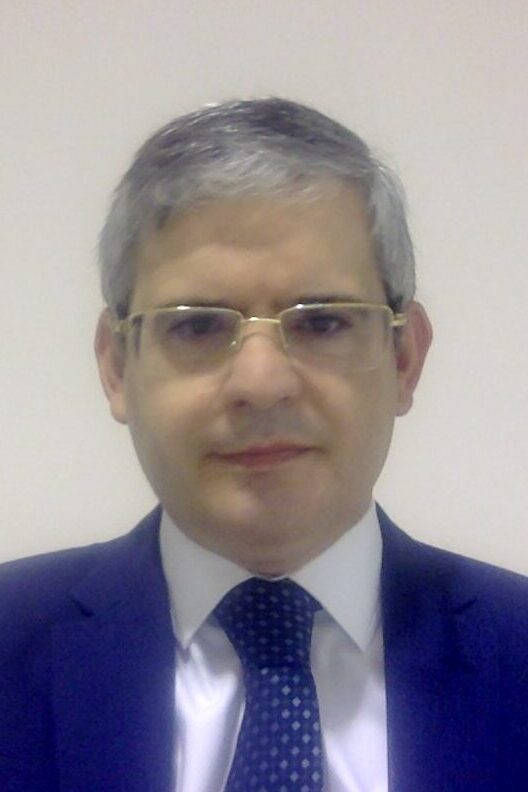

From open source to your research project: Why standards matter
Dr.-Ing. Stefan Scherzinger
Expert Robotic Ecosystems and Software Integration, Software & Electronics, Research & Development, SCHUNK SE & Co. KG, Brackenheim-Hausen, Germany, stefan.scherzinger@de.schunk.com
Researchers in the robotics and automation fields often rely on open-source software for a variety of devices and systems as part of their scientific projects. However, this software is typically developed and maintained by small communities or individuals, which poses challenges as the number of products and ecosystem interfaces continues to grow. In this talk we will explore SCHUNK’s current challenges in developing open-source gripper drivers for robotic ecosystems and motivate the use of standards to address this dilemma.
Dr. Stefan Scherzinger received the Dipl.-Ing. (Equiv. MSc) degree in mechanical engineering from KIT Karlsruhe Institute of Technology in 2014 and the Dr.-Ing. (Equiv. PhD) in robotics and computer sciences also from KIT in 2021. He worked for ten years at the FZI Research Center for Information Technology on robot control and robotic assembly in various national and European research projects. His research included skill learning from demonstration, admittance control, and force control. Among several open-source contributions, he develops and maintains the cartesian_controllers suite for manipulator control in ROS1/2.He recently joined Schunk SE & Co. KG as an innovation manager in robot ecosystems and software integration.
Standardized data provision through digital twins (Asset Administration Shell)
Dr.-Ing. Ansgar Kriwet
Festo SE & Co. KG, Executive Board Research and Development, Esslingen, Germany, ansgar.kriwet@festo.com
Interoperable and standardized data is critical to shortening time-to-market for machine manufacturers. Automated and error-free access to information across company boundaries enables data quality and simplifies machine development and factory operations. Aspects discussed are; how the optimal component and machine design can already be identified in a networked virtual environment; and how Digital Twins enable a well-understood international digital language between networked companies. Important working groups for standardized descriptions, data structures and data are for the digital twins will be mentioned.
After studying mechanical engineering at the University of Aachen, Dr. Kriwet spent several years as research associate at The Institute for Machine Tools and Production Technology of the TU Berlin, followed by the Institute for Management and Technology IMT in Berlin. In 1995 Dr. Kriwet joined Festo and contributed significantly to the development of the new founded Cybernetic division. His mission here was the transformation of the component business of Festo to a solution business, creating customer advantages through ease of integration. In 2009 Dr. Kriwet was appointed to the Management Board of the Festo AG for Region and Sales Europe, followed by the responsibility for Global Sales in 2013. Since September 2022 Dr. Kriwet has been the Chief Technology Officer of Festo SE & Co. KG and is responsible for Global Research and Development.
